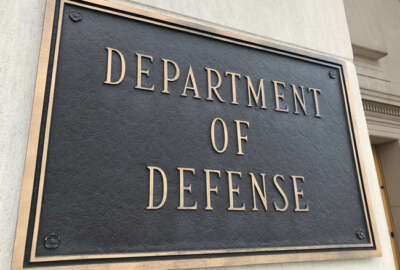DoD adds new protections from minor infractions for military sexual assault victims reporting crimes
Victims of sexual assault in the military now have more options to protect themselves from minor infractions if they decide to report a crime to their command.
Victims of sexual assault in the military now have more options to protect themselves from minor infractions if they decide to report a crime to their command.
A new policy from the Defense Department, and mandated by Congress, looks past small violations pertaining to the environment a victim may have been in at the time of the assault and may discourage the victim from reporting for fear of retribution.
Those minor infractions include things like underage drinking, being out past curfew and being in “unprofessional” relationships.
The Safe-to-Report policy, which was signed on Oct. 25 by Gilbert Cisneros, DoD undersecretary for personnel and readiness, is similar to policies many colleges and universities have implemented across the nation to prioritize saving lives and reporting sexual assaults.
“Currently, fear of punishment or retaliation for minor collateral misconduct dissuades sexual assault victims from reporting. Infractions like curfew violations or underage drinking should not stand in the way of providing assault survivors with needed services or prosecuting perpetrators,” Rep. Jackie Speier (D-Calif.), chairwoman of the House Armed Services Personnel Subcommittee, said last year when she introduced a bill requiring the Safe-to-Report policy. “This policy would encourage survivors to come forward and show that the military makes combatting sexual assault a priority.”
The DoD memo requires each military branch and the National Guard to issue their own Safe-to-Report policies that will detail the processes and procedures for identification of minor and non-minor offenses.
The memo outlines “aggravating circumstances” that may make an offense committed by the victim non-minor.
“Aggravating circumstances increase the gravity of alleged collateral misconduct or its impact on good order and discipline,” the memo states. “Commanders shall take into account these factors in determining whether the alleged collateral misconduct is minor.”
Those circumstances include causing or threatening to cause failure in a military mission or objective, threatening the health and safety of another person (not including acts of self-harm or self-defense), or acts that damage government or personal property (except in self-defense).
“The existence of aggravating circumstances does not automatically result in making the alleged collateral misconduct non-minor,” the memo reads. “The command retains the discretion whether, or not, to take disciplinary action against a victim for alleged collateral misconduct where aggravating circumstances render the misconduct more serious.”
There are also certain mitigating circumstances that can decrease the gravity of misconduct. Commanders are to take into account the victim’s age and experience level, whether the suspect is a person of authority, if there was stalking or hazing and if the misconduct was known to the command before the assault.
Other things commanders will take into account is if any misconduct after an assault would be tied to trauma, for example, a victim drinking to alleviate the emotional pain of the attack.
Commanders will have the final say if an infraction is minor or non-minor.
Currently, there is legislation going through Congress that would take prosecution of sex crimes and other crimes out of the chain of command.
The memo states that if that ends up being law, then DoD will revise its policy to fit the new standard.
Copyright © 2024 Federal News Network. All rights reserved. This website is not intended for users located within the European Economic Area.
Scott Maucione is a defense reporter for Federal News Network and reports on human capital, workforce and the Defense Department at-large.
Follow @smaucioneWFED
Related Stories







